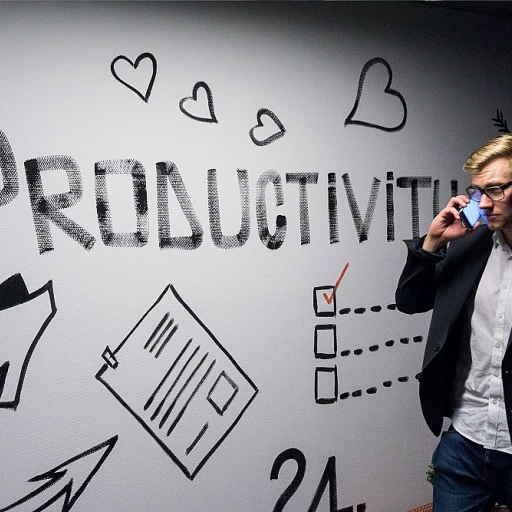
Understanding the current role of AI in human resources
How Artificial Intelligence is Shaping Human Resources Today
Artificial intelligence is no longer a futuristic concept in human resources. It is already transforming the way HR professionals work, from recruitment to performance management. AI-powered tools are now part of daily HR operations, helping teams make data-driven decisions and streamline repetitive tasks. But what does this mean for employees and the overall employee experience?
AI in HR is primarily used to automate time-consuming processes. For example, machine learning algorithms can quickly scan hundreds of job applications, identifying top candidates based on skills and experience. This not only speeds up the hiring process but also helps reduce human bias in recruitment. Predictive analytics are being used for workforce planning, allowing HR teams to anticipate talent needs and improve talent management strategies.
Another area where artificial intelligence is making a difference is in employee engagement and well-being. AI-driven platforms can analyze employee feedback in real time, providing insights into team morale and suggesting actions to improve the work environment. These tools also support performance management by tracking employee performance data and offering personalized recommendations for development.
Despite these advancements, the human element remains crucial. While AI can handle large volumes of data and automate repetitive tasks, it cannot replace the empathy and nuanced understanding that HR representatives bring to employee relations and decision making. The integration of AI in HR is not about reps being replaced, but about empowering professionals to focus on more strategic and meaningful work.
As organizations adopt more data-driven approaches, questions around data privacy and ethical use of artificial intelligence are becoming more important. HR professionals must ensure that AI tools are used responsibly, especially when handling sensitive employee information. For a deeper dive into the ethical challenges and opportunities of AI in HR, check out this resource on DEIJB in artificial intelligence for human resources.
In summary, AI is already a valuable partner in HR, supporting professionals in recruitment, performance management, and employee engagement. However, the human touch remains essential for creating a positive employee experience and navigating the complexities of workforce management.
Tasks where AI excels and where humans are still needed
Where Artificial Intelligence Shines in HR
Artificial intelligence has become a powerful tool in human resources, especially for tasks that involve large volumes of data and repetitive processes. Machine learning algorithms can quickly scan thousands of resumes, identify patterns in employee performance, and even predict which candidates are likely to succeed in a specific job. These data-driven capabilities help HR professionals save time and improve the accuracy of the recruitment and hiring process.
- Recruitment and hiring: AI tools can automate resume screening, schedule interviews, and provide predictive analytics to identify top talent.
- Performance management: Artificial intelligence can analyze employee performance data in real time, flagging trends and helping managers make informed decisions.
- Workforce planning: Machine learning models can forecast workforce needs, optimize team structures, and support talent management strategies.
- Employee engagement: AI-powered surveys and chatbots can monitor employee well being and gather feedback efficiently.
- Repetitive tasks: Automation of routine HR tasks, such as payroll processing and benefits administration, frees up time for more strategic work.
Where Human Expertise Remains Essential
Despite these advances, there are areas where human intelligence and empathy are irreplaceable. HR professionals bring context, emotional intelligence, and ethical judgment to situations that artificial intelligence cannot fully grasp. For example, sensitive conversations about employee experience, conflict resolution, and fostering a positive workplace culture require a human touch. Decision making in complex or ambiguous situations often depends on understanding nuances that go beyond data.
- Employee relations: Addressing concerns, mediating disputes, and supporting employee engagement initiatives rely on human interaction.
- Strategic leadership: Developing organizational culture and leading change management efforts are tasks where human insight is critical.
- Data privacy and ethics: Ensuring responsible use of employee data and maintaining trust requires careful oversight by HR professionals.
While AI can help with many aspects of HR, it is not about reps being replaced. Instead, artificial intelligence acts as a partner, handling data-heavy tasks and allowing HR teams to focus on what they do best—supporting employees and driving organizational success. For those interested in the technical side, understanding why data annotation certification matters for HR professionals in AI is becoming increasingly important as these tools evolve.
The evolving skill set for HR professionals in an AI-driven world
New Competencies for the Modern HR Professional
As artificial intelligence becomes more embedded in human resources, the expectations for HR professionals are shifting. While AI tools handle repetitive tasks and process large volumes of data, the human element remains essential for interpreting results, making nuanced decisions, and ensuring a positive employee experience. The evolving landscape means that HR jobs are not being replaced, but rather transformed.
- Data literacy: HR professionals now need to be comfortable working with data-driven insights. Understanding how to interpret analytics, especially in areas like workforce planning, performance management, and employee engagement, is becoming a core part of the job.
- AI tool proficiency: Familiarity with artificial intelligence platforms and machine learning applications is increasingly important. These tools help streamline the hiring process, enhance talent management, and support real-time decision making.
- Strategic thinking: With AI handling routine tasks, HR teams are expected to focus more on strategic initiatives. This includes improving employee well-being, designing better employee experiences, and supporting organizational change.
- Ethical judgment: As AI systems influence recruitment, performance management, and customer service, professionals must be vigilant about data privacy and fairness. Human oversight is crucial to ensure that intelligence-driven processes do not inadvertently harm employees or candidates.
- Communication and empathy: Despite technological advances, the human touch in HR remains irreplaceable. Professionals must excel at building trust, resolving conflicts, and fostering a culture of inclusion and engagement.
Organizations are investing in upskilling their HR teams to adapt to these changes. Training in predictive analytics, data management, and the ethical use of AI is becoming standard. For a deeper look at how clear management solutions are transforming human resources with artificial intelligence, explore this resource.
Ultimately, the future of HR will be defined by a partnership between human expertise and artificial intelligence. Professionals who embrace new tools and develop these emerging skills will play a pivotal role in shaping the employee experience and driving organizational success.
Ethical considerations and challenges of using AI in HR
Balancing Data-Driven Decisions with Human Judgment
As artificial intelligence becomes more embedded in human resources, the line between data-driven decision making and human intuition can blur. AI tools can analyze vast amounts of employee data in real time, supporting tasks like recruitment, performance management, and workforce planning. However, relying solely on machine learning for decisions about jobs, employee engagement, or talent management raises concerns about fairness and transparency. Professionals must ensure that algorithms do not reinforce biases or overlook the unique context of individual employees.
Protecting Employee Data and Privacy
One of the most pressing challenges is data privacy. AI systems process sensitive information about employees, from performance metrics to well being indicators. Human resources teams must implement strict data management protocols to protect this information. This includes ensuring compliance with regulations and being transparent with employees about how their data will be used. The risk of data breaches or misuse is real, and it can undermine trust in both the technology and the HR department.
Maintaining Employee Experience and Well Being
While artificial intelligence can automate repetitive tasks and streamline the hiring process, there is a risk that employees may feel like they are being replaced or reduced to data points. HR professionals need to use AI as a tool to enhance the employee experience, not diminish it. This means using predictive analytics and other technologies to help, not hinder, employee engagement and well being. Human oversight is essential to ensure that the use of AI supports a positive work environment and does not negatively impact morale.
Ensuring Accountability in AI-Driven HR Processes
With the increasing use of AI in tasks such as recruitment, performance management, and customer service, questions arise about who is responsible when things go wrong. If an AI tool makes a flawed recommendation or a decision that impacts an employee’s job, HR teams must be prepared to intervene. Establishing clear accountability and maintaining a human element in the decision-making process is crucial to uphold ethical standards and protect employees’ rights.
Real-world examples of AI integration in HR departments
AI-powered recruitment and talent management
Artificial intelligence is already transforming how human resources teams approach recruitment and talent management. Many organizations use machine learning tools to screen resumes, identify top candidates, and even schedule interviews. These systems analyze large volumes of data to help HR professionals make more data driven decisions, saving time on repetitive tasks and improving the efficiency of the hiring process. However, while AI can streamline initial candidate selection, human judgment remains essential for final interviews and assessing cultural fit.Enhancing employee experience and engagement
AI-driven platforms are being used to monitor employee engagement and well being in real time. For example, chatbots and virtual assistants can answer common HR questions, provide customer service, and help employees navigate benefits or policies. This frees up HR reps to focus on more complex tasks that require empathy and nuanced decision making. Predictive analytics tools can also identify patterns in employee data, helping HR teams proactively address issues related to performance management or employee experience before they escalate.Workforce planning and performance management
Organizations are leveraging artificial intelligence for workforce planning, using predictive analytics to forecast staffing needs and optimize team structures. AI tools can analyze historical performance data to identify high performing employees, flag potential retention risks, and recommend personalized development plans. This data driven approach supports better talent management and helps HR professionals align workforce strategies with business goals.Challenges and lessons from real-world adoption
Despite the benefits, integrating AI into HR processes comes with challenges. Data privacy is a major concern, as sensitive employee information must be protected throughout the process. There are also questions about bias in AI algorithms, especially in recruitment and performance evaluations. HR professionals need to ensure that artificial intelligence tools are transparent, fair, and regularly audited to prevent unintended discrimination. Real world examples show that successful AI adoption in HR requires a balance between automation and the human touch, with professionals overseeing and guiding the technology rather than being replaced by it.- AI excels at automating repetitive tasks and processing large volumes of data.
- Human oversight is crucial for decision making, employee engagement, and maintaining ethical standards.
- Continuous training and adaptation are needed for HR teams to maximize the benefits of AI tools.
What the future holds for HR representatives and AI collaboration
Collaboration, Not Replacement: The Future of HR with AI
The future of human resources is not about HR professionals being replaced by artificial intelligence, but about a new era of collaboration. AI tools are becoming essential in helping HR teams manage data-driven tasks, from recruitment to performance management. Yet, the human element remains crucial for decision making, employee engagement, and fostering a positive employee experience.
How AI Will Shape HR Jobs
AI is already transforming the hiring process, workforce planning, and talent management. Machine learning and predictive analytics allow HR reps to make better, real-time decisions about candidates and employees. These tools can automate repetitive tasks, freeing up time for professionals to focus on strategic work and employee well-being. However, jobs in human resources will continue to require skills in empathy, communication, and ethical judgment—areas where artificial intelligence still cannot fully replicate human abilities.
New Opportunities for HR Professionals
- Enhanced decision making: Data-driven insights help HR reps identify trends in employee performance and engagement, supporting more effective management strategies.
- Improved employee experience: AI-powered tools can personalize support, streamline customer service, and help employees navigate benefits or career development options.
- Focus on well-being: With AI handling routine tasks, HR professionals can dedicate more time to supporting employee well-being and building inclusive teams.
Challenges Ahead
Despite these benefits, challenges remain. Data privacy and ethical use of employee data are ongoing concerns. HR teams must ensure that artificial intelligence is used responsibly and transparently, especially in sensitive areas like performance management and recruitment. The need for continuous learning and adaptation will be key for HR professionals as AI tools evolve.
What Will Not Change
While AI will continue to automate and optimize many HR processes, the human touch in human resources is irreplaceable. Building trust, understanding employee needs, and making complex judgments are tasks that still require a human approach. The future of HR is about leveraging artificial intelligence to enhance—not replace—the work of HR representatives.













